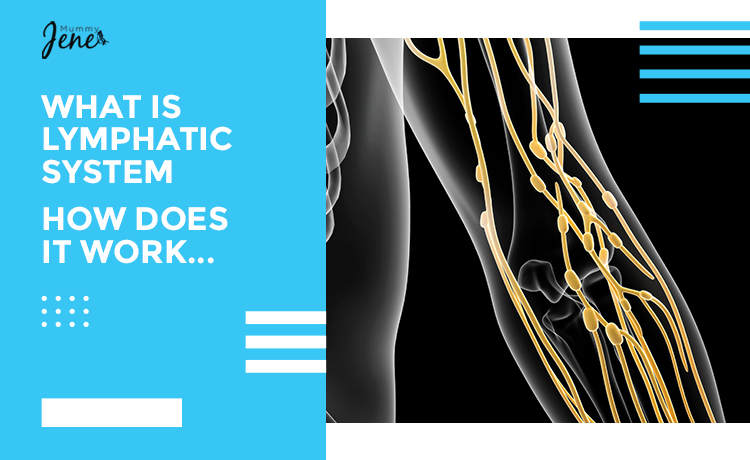The lymphatic system is a very important body system. This is due to its key role in body defense and detoxification. Below, we will look at what the lymphatic system is and what it does for the body.
So What Is The Lymphatic System?
The lymphatic system is a network of specific tissues and organs that work to detoxify the body and defend it against disease-causing organisms. By its functions, it is part of both the circulatory system and the immune system. The lymphatic system consists of a large network of lymphatic vessels, lymph nodes, lymphoid organs, lymphoid tissues. Below we will look at each of these components and their role in the lymphatic system.
Lymph
This is the fluid that is transported throughout the lymphatic system. It is derived from interstitial fluid( interstitial fluid is the fluid found in-between the cells of the body). When interstitial fluid enters into the smallest lymph vessels, aptly called the lymph capillaries, it is transported through vessels that gradually increase in size, through lymph nodes, till it gets to the right or left subclavian vein where it empties into and mixes with central venous blood. Lymph is derived from interstitial fluid, which is derived from ultrafiltration of blood into the interstitial spaces. As a result, its composition is similar to blood plasma. Things transported inside the lymph include lipids from the digestive system, proteins, and bacteria, dysfunctional cells, or foreign bodies and antigens. Lymph also contains infection-fighting immune cells as well as cellular waste products.
Lymphatic Vessels
These are thin-walled vessels spread all over the body. Their primary role is to transport lymph around the body.
Lymph Nodes
These are little kidney-shaped structures that occur along lymph vessels and contain a large number of lymph nodes. They act as filters for foreign bodies picked up by the lymph; they also contain many lymphocytes that act to defend the body.
Lymphoid Organs
These include structures such as the bone marrow and the Thymus, which produce lymphocytes( immune cells that defend the body) and are called primary lymphoid organs and lymph nodes and spleen, which contain lymphocytes in large amounts and can initiate the immune response to infection.
What Does The Immune System Do?
Some immune system functions may be readily deduced from the description of the components that we have looked at above. They broadly consist of circulatory and defense functions. Below, we will explore some of the functions the lymphatic system carries out in your body.
Protecting The Body Against Diseases
The lymphatic system contains lymphocytes. Lymphocytes are immune cells that help defend the body against organisms and other foreign bodies that can cause diseases. It does this by looking out for them and then attacking them.
Transport And Removal Of Waste Products And Abnormal Cells From The Body
The body cells excrete waste products into the interstitial spaces, and these are consequently picked up in the lymph and transported to sites from which they are eventually excreted from the body. Cellular debris and abnormal cells are also cleared from the body by the lymph.
Lipid Transport From The Digestive Tract
The lymphatic system absorbs lipids from the digestive tract and transports it into the bloodstream from where it is used in metabolic activities.
Maintenance Of Body Fluid Levels
The lymphatic system drains the excess fluid collected in the interstitial spaces from cells and tissues and returns it to the bloodstream. The importance of this function is demonstrated by the fact that when it is compromised, edema often develops.








